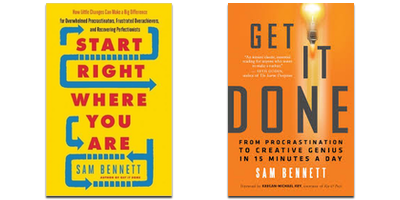
The thing I thought we would talk about today is the inner glass ceilings- The self-limiting behavior that you may not even know that you have. This will be a 2-part blog post because I think this is so important, and I have a lot to say about it.
I did a call earlier this week with my friend, Susan Harrow, who’s a public relations expert and she has a little course about how to get featured in a magazine. I posted about it in this Facebook group. And I thought for sure you guys were going to go crazy for this.
I thought for sure, you’d be like, Oh, I would love to have my product in a magazine. I’d love to have my art in a magazine. I’d love to be quoted in a magazine. I’d love to have my essay featured in a magazine. I’d love to have my book in a magazine. I thought for sure you guys would be all over that, like white on rice.
And it’s not that you weren’t. I mean, people definitely enrolled and the response was good, but it was not as enthusiastic as I had expected it to be. And then I thought about it and I really sort of put on my empathy head, my empathy heart, and kind of tried to feel into what was going on. And I realized it was this.
That really, the idea of being in O magazine was not so much thrilling to a lot of you- it was terrifying. That level of success and visibility felt threatening. It felt like maybe it was something you wouldn’t be able to handle. What if everybody thinks I’m great and then you have to be great all the time.
What if I get overwhelmed? In a lot of ways it felt to me like y’all were just kind of taking yourself out of the game before you even had any information.
Before you even thought, well, I could go to the free thing about how a person gets featured in O magazine… I could do that much research just to see if it’s something I might want. Rather than just saying, Oh, no, no, no, that’s not for me. And I wrote a big post about it. It’s on this Facebook page, about how you were taught to be modest, you were taught to defer, you were taught don’t toot your own horn. Don’t think you’re so big. Don’t get too big for your britches. Who does she think she is?
Tall poppy syndrome, all that you were taught by your family, you were taught that by school, you were taught that by the culture. And even more, this sort of second level: everybody gets that “don’t toot your own horn” message, men and women alike, but then women get an extra little message that says, “let the men go first.”
“Don’t outsmart the boys. Don’t make the boys look bad, stay in the back. Be the power behind the throne. Be the supportive help. Everybody else’s things are more important than your things.” When women get rewarded for it, they don’t get rewarded. Women are expected to help everybody with everybody else’s thing first.
And if they put their own stuff first that’s selfish, right? She got that message. I certainly got that message. Everyone I know got that message. It’s not your fault. It’s no wonder that to suddenly fight back against a hundred years of cultural programming that says, do not seek out the spotlight for yourself, that when somebody says, hey, you could be in a magazine, you could be in the spotlight. You feel like, oh that doesn’t seem like such a good idea. It feels risky. It feels like I might get teased. It feels like I might get punished. It feels like people might not like me. And all those things are true.
I guarantee you, when your work starts to get more popular, there will be people who do not like you for sure. But what you find is that it matters less. When you’ve had five social media friends and one of them doesn’t like you, that’s a big deal, but if you’ve got 50,000 social media friends and 50 of them don’t like you, it’s not that big of a deal.

